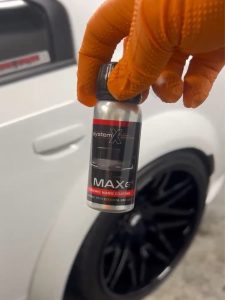Imagine walking into a workspace that feels cooler and more comfortable, even on the hottest days. That’s the magic of commercial window tinting. It’s not just about aesthetics; it’s a smart investment for any business looking to enhance its environment while cutting down on energy costs.
With the right window tinting, you can reduce glare and protect your furniture from fading, creating a more inviting atmosphere for both employees and clients. Plus, it adds an extra layer of privacy and security, making your business stand out in a competitive market. Discover how commercial window tinting can transform your space and boost your bottom line.
Overview of Commercial Business Window Tinting
Commercial business window tinting offers significant advantages, enhancing workplace comfort and security. This process involves applying a thin film to windows, providing multiple benefits that contribute to a better working environment.
Benefits of Window Tinting
- Reduced Glare: Tinting significantly reduces glare from sunlight, creating a more comfortable atmosphere for employees and customers.
- UV Protection: Window films block up to 99% of harmful UV rays, protecting furniture and flooring from fading and minimizing health risks related to sun exposure.
- Energy Efficiency: Tinted windows can lower energy costs by reducing cooling needs. During hot months, this leads to decreased reliance on air conditioning, contributing to lower utility bills.
- Enhanced Privacy: Tinting provides an added layer of privacy, enabling employees to focus without external distractions while preventing outsiders from easily viewing sensitive operations.
- Increased Security: Window films make glass more shatter-resistant, deterring break-ins and protecting your business from theft and vandalism.
Factors to Consider Before Tinting
- Local Regulations: Research local laws regarding window tinting, as regulations may vary by jurisdiction and can impact the type and darkness of tint allowed.
- Type of Film: Explore different types of window films available, including reflective, non-reflective, and decorative films, to choose the best option for your business needs.
- Professional Installation: Consider hiring a professional for installation to ensure optimal performance and longevity of the tint. Poor installation can lead to bubbles or peeling.
- Cost vs. Benefit: Evaluate the upfront costs against long-term savings on energy bills and the protection benefits to assess the value of investment in window tinting.
- Aesthetic Appeal: Look at how tinting complements your building’s design and branding. Choosing the right aesthetic can enhance your business’s appearance while providing practical benefits.
Types of Window Tinting Films
Selecting the right window tinting film is crucial for maximizing the benefits of commercial window tinting. Two main categories exist: standard films and specialty films.
Standard Films
Standard films offer basic protection and performance features. Common types include:
- Dyed Films: These films use a dye layer for UV protection and glare reduction, ideal for aesthetic purposes.
- Metalized Films: These films incorporate metal particles, reflecting heat and enhancing energy efficiency while reducing glare.
- Carbon Films: Carbon films provide superior heat rejection without metallic interference, ensuring an increased lifespan while maintaining visibility.
Standard films generally improve comfort and energy efficiency in a cost-effective manner.
Specialty Films
Specialty films cater to specific needs, offering unique benefits. Notable options include:
- Ceramic Films: These films use advanced technology to provide excellent heat rejection and UV protection without altering visible light transmission.
- Safety and Security Films: Designed to enhance safety, these films protect against shattering glass, making them ideal for public spaces.
- Reflective Films: These films offer high glare reduction and privacy while enhancing energy performance by reflecting solar heat.
- Frosted Films: These decorative films provide privacy without sacrificing natural light, suitable for conference rooms or restrooms.
Specialty films address particular requirements, making them valuable choices for businesses seeking tailored solutions.
Installation Process
The installation process for commercial window tinting is crucial for achieving optimal results. You can choose professional installation or tackle a DIY project, depending on your preference and skill level.
Professional Installation
Professional installation offers several advantages. Trained technicians have the expertise to select the appropriate film and apply it correctly. They ensure precise measurements, resulting in a seamless finish. Additionally, professionals can address challenges such as uneven window surfaces or complex commercial layouts. Most importantly, warranties for materials often require certified installation, protecting your investment. When deciding on a professional service, consider researching reviews, checking credentials, and requesting quotes from multiple providers.
DIY Installation
DIY installation can be a cost-effective choice if you choose to undertake the project on your own. You must gather essential supplies, including window film, a utility knife, a squeegee, and a cleaning solution. Precise measurements are necessary to order enough material. Thoroughly clean the windows before applying the film to ensure adhesion. Follow the manufacturer’s instructions closely for optimal results. Be prepared for potential difficulties, such as bubbles or misalignment, which may affect the film’s performance. If you encounter challenges during the process, consulting instructional videos can provide helpful guidance.
Cost Analysis
Cost analysis for commercial window tinting involves assessing both the initial investment and long-term savings associated with the installation.
Initial Investment
The initial investment for commercial window tinting varies based on the size of your windows and the type of film selected. Average costs range from $2 to $15 per square foot, depending on factors like film quality and installation complexity. Specialty films often incur higher costs due to enhanced features. For example, safety and security films may cost more due to additional layers of protection. It’s essential to get quotes from multiple installers to ensure competitive pricing while considering the expertise they offer.
Long-term Savings
Long-term savings from window tinting can significantly impact your operational costs. Businesses can expect energy cost reductions between 10% and 30% due to decreased reliance on heating and cooling systems. Additionally, window tinting protects furnishings and equipment from UV damage, prolonging their lifespan, and resulting in fewer replacement costs. Many businesses also experience increased productivity due to enhanced comfort, leading to a more efficient workforce. Overall, the investment in window tinting pays off by decreasing utility expenses and enhancing asset longevity.
Conclusion
Investing in commercial window tinting can transform your workspace into a more comfortable and productive environment. By reducing glare and protecting your assets from UV damage, you not only enhance employee well-being but also safeguard your investment.
Choosing the right type of film and ensuring professional installation can maximize these benefits while aligning with your business’s aesthetic. With potential energy savings and increased security, window tinting proves to be a smart financial decision that pays off in the long run.
Consider the advantages of window tinting as you look to improve your commercial space and boost overall efficiency.
Frequently Asked Questions
What are the benefits of commercial window tinting for businesses?
Commercial window tinting offers several benefits, including reduced glare, UV protection for furniture, enhanced privacy, and improved security. It also contributes to energy efficiency by lowering utility costs, ultimately creating a comfortable workspace that boosts productivity and profitability.
How does window tinting improve energy efficiency?
Window tinting improves energy efficiency by reducing solar heat gain, leading to lower air conditioning costs. It can help decrease energy expenses by 10% to 30% and prolongs the lifespan of office furnishings by blocking harmful UV rays.
What types of window tinting films are available?
There are two main categories of window tinting films: standard and specialty films. Standard films include dyed, metalized, and carbon films for basic protection. Specialty films, such as ceramic and reflective films, provide unique benefits like enhanced safety, glare reduction, and privacy.
Should I hire a professional for window tinting installation?
Yes, hiring a professional for window tinting installation is recommended. Professionals ensure precise measurements, proper film application, and can address challenges like uneven surfaces. They often provide warranties, protecting your investment in the long run.
Can I install window tinting myself?
While DIY installation is possible, it requires careful preparation and following manufacturer instructions. Be prepared for challenges like bubbles or misalignment. For the best results, consulting instructional videos or seeking professional help is advised.
What is the cost of commercial window tinting?
The cost of commercial window tinting varies based on window size and film type, typically ranging from $2 to $15 per square foot. Specialty films may incur higher costs due to their advanced features, but they offer significant long-term savings by reducing energy expenses.
How does window tinting enhance privacy and security?
Window tinting enhances privacy by limiting visibility from the outside while maintaining natural light. It also improves security by making glass harder to break and protecting against theft, creating a safer environment for both employees and assets.





